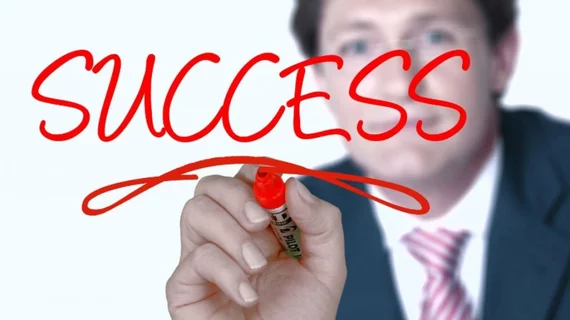RSNA 2018: 3 ways to improve personal productivity
Radiologist Puneet Bhargava, MD, spoke Wednesday, Nov. 28, at RSNA 2018 in Chicago about how to enhance personal productivity. Bhargava, professor and director of gastrointestinal radiology at the University of Washington (UW) in Seattle, called the subject his life’s journey and said it first grabbed his interest early in his career, when he was “trying to make it through the ranks” at UW.
“I’m not trying to advance the notion that all of us should be able to do everything in our lives at a very efficient level—that’s not the idea here,” Bhargava said. “The idea here is to be able to do what we want to do in an efficient fashion so that we’re able to open up more time to do stuff that matters to us.”
These are three ways he suggested one can enhance their own productivity:
1. Be Mindful ("Mind Like Water")
"Mind like water," Bhargava noted, is a state in which a person’s brain, for the first time ever, can observe what is around it. People typically don’t see the things that are really obvious because their brains are overloaded with other things. In other words: be mindful.
A key part of this way of thinking is writing things down and having a concrete list of what needs to be accomplished. Bhargava illustrated this by sharing an “algorithm” that further stratified the process of making a to-do list and better understanding what tasks are important. By writing a to-do list, Bhargava said, many tasks may be whittled out because of a lack of interest, or the person has moved on in life or a deadline may have passed.
If there is no action that can be taken with the task, it can be deleted. For the items that are actionable, Bhargava said that if it takes less than two minutes, the action should be completed immediately. If it takes more than two minutes, the tasks can be either deferred and added to the final to-do list or to a calendar to be completed at a later date. Or, he said, the task should be delegated to someone who may have the skill set.
“Move those tasks either to a calendar or to-do list but they should be away from your active life, your everyday life, otherwise it’s subconsciously slowing you down,” he said.
2. Gamification—Make it fun!
The process of gamification is “to make things fun” or providing titles, labels or numbers to show people are improving or moving up the ladder. An potential example Bhargava noted would be to “gamify” radiology patients and give them a “status” for following up on their imaging appointments or getting all of their screening studies done on time. Gamification, Bhargava said, makes patients and people in general work harder because “no one wants to be a beginner.”
“Gamification is big,” he added. “Nobody does it better than all of the health and tracking devices that we use, like FitBit.”
Taking his examples, Bhargava said that if people can take their day-to-day tasks and make them fun, they can be more productive.
3. Think Big and Set Goals
“Taking massive action is the only way to fulfill your true potential,” Bhargava said. He then talked about the three key ideas behind "the 10X rule:"
- Set targets that are 10 times greater than what you believe you can achieve.
- Take actions that are 10 times greater that what is believed is necessary to achieve goals.
- The biggest mistake people make is not setting goals high enough.
"Some of the things we talk about will be very alien to you and you will not like them and that’s fine," Bhargava said. "But if you’re able to adopt a few of these things that we talked about, your life will change."

